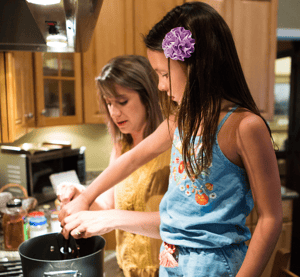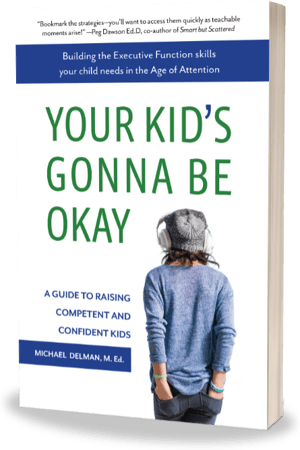Editor’s note: This week, we feature guest blogger Dr. Jane Greenstein, a licensed psychologist in MA. Please read more about Dr. Greenstein below.
These are difficult times for everyone. Between coronavirus fears, quarantine, school closings, and  financial uncertainty, we are in uncharted territory. It’s hard to manage worries about the future when so much is unknown. It’s hard maintaining a sense of normalcy when we have lost the structures of our typical lives. It’s hard juggling responsibilities for ourselves, our households, and (if we are fortunate) our jobs. For those with children in the home, you have to do this while also looking after their physical, emotional, and intellectual well-being. And for caregivers of children and teens with significant attention control weakness, this already demanding reality is made more challenging by the degree of support your kid needs to complete tasks, even under the best of circumstances.
financial uncertainty, we are in uncharted territory. It’s hard to manage worries about the future when so much is unknown. It’s hard maintaining a sense of normalcy when we have lost the structures of our typical lives. It’s hard juggling responsibilities for ourselves, our households, and (if we are fortunate) our jobs. For those with children in the home, you have to do this while also looking after their physical, emotional, and intellectual well-being. And for caregivers of children and teens with significant attention control weakness, this already demanding reality is made more challenging by the degree of support your kid needs to complete tasks, even under the best of circumstances.
Those with ADHD and other attention disorders have difficulty not with attention per se, but with attention control. This means that they can certainly pay attention to something that is of interest to them. In fact, individuals with ADHD can become hyper-focused (video games for hours, sound familiar?). But sustaining attention for non-preferred tasks or switching attention from one task to another is quite a different matter. Since attention control is also required when developing, initiating, and sticking to a plan, completing complex multi-step activities (cleaning their room, finishing a school project) can be particularly difficult.
Not a great match for the independent, self-directed learning and hygiene expectations that we now are faced with while staying at home day-after-day, right? Often our instinct is to talk at our ADHD kids until they do what they need to do, or to establish a highly detailed schedule that we closely supervise. Yet often when parents or other caregivers try to help ensure follow-through and task completion, older kids and teens push back and conflict ensues! Here are some key principles to keep in mind as you work to support your kid while maintaining harmony and leaving time for everything else you have on your plate as well:
- Structure helps most people, but especially those with ADHD. Yet expecting adherence to a rigid schedule might not be realistic. Rather, it will be useful to set out goals for each day but allow flexibility for when and how tasks are completed. Work in collaboration with your child to develop each day’s general plan for how to structure time and accomplish goals. Kids will be more open to plans that they have a role in developing. And remember to schedule in frequent movement breaks. Research shows that physical activity is especially useful in “re-charging” mental control in those with ADHD.
- Together, plan for how to avoid roadblocks that may come up as they accomplish their daily goals. Developing strategies before tackling hard tasks can minimize frustration for everyone. You can help your child find their own best strategies through guided questioning. For example, look over work sent home from a teacher and ask your child, “What will be the easiest part of this for you? What will be the hardest? What do you know about yourself that explains why the easy parts are easier for you? Let’s figure out why the hard parts will be harder? What have you done in the past when faced with a similar challenging task? Would that work now?” If they get stuck you can offer suggestions, but only after they have had the opportunity to get as far as they can themselves. In this way, you model for them how to problem-solve and help them develop their own skills.
- Write tasks down in a checklist format or a visual map. This will allow your child to have greater independence in following their plan without your needing to supervise constantly. Setting time estimates for each part of the plan will also be useful. For kids who are able, using a timer to keep track themselves can be useful and fosters self-monitoring skills as well as self-confidence. If they are not ready for that level of independence, then having these time estimates will help everyone know when a check-in from you is appropriate.
- Remember that nothing is more important than health—physical and emotional. Physical activity, good nutrition, adequate rest, excellent hygiene – these are essential now more than ever. But emotional well-being is also important. So if that to-do list is resulting in stress and conflict, take a break. Get some physical activity. Listen to music that makes you feel good. Laugh. Then come back when everyone is calm and re-think the plan you developed – together.
Whatever you do to support your child with attention challenges, they need to always know that you love them for who they are, not what they do. Be patient and supportive; this reality is especially hard for them. When your kid does something well, praise, praise, praise! When they aren’t successful with something, do an emotionally neutral “debrief” together to figure out what worked, what didn’t, and why. This applies to you, too. Give yourself credit for your parenting successes and forgive yourself when things don’t work well the first time.
So play the long-game; remember that skill development is a process. This takes the weight off each individual moment. And keep in mind that this is a marathon, not a sprint. Pace yourself. Keeping this mindset will help you remember to make time for the fun that we all need, now more than ever.
-1.jpg?width=170&name=head%20shot%20(1)-1.jpg) Dr. Jane Greenstein is a licensed psychologist with a private practice in diagnostic assessment of learning challenges including ADHD, dyslexia, and other specific learning disorders. Using a neuropsychological approach, she helps families and schools gain clarity about why a student is struggling and what to do about it. A graduate of Princeton University and the University of Virginia, she has been working with school-age children, adolescents, and young adults in collaboration with educators for over 20 years. Dr. Greenstein has extensive experience in diagnostic assessment, behavioral interventions, child development, and special education systems in schools. She also is a parent of two young adults.
Dr. Jane Greenstein is a licensed psychologist with a private practice in diagnostic assessment of learning challenges including ADHD, dyslexia, and other specific learning disorders. Using a neuropsychological approach, she helps families and schools gain clarity about why a student is struggling and what to do about it. A graduate of Princeton University and the University of Virginia, she has been working with school-age children, adolescents, and young adults in collaboration with educators for over 20 years. Dr. Greenstein has extensive experience in diagnostic assessment, behavioral interventions, child development, and special education systems in schools. She also is a parent of two young adults.
In this book, parents will find enlightening tips and tools from a lifelong educator and expert in Executive Function intervention - and reassurance that your kids will be okay when equipped with the skills they need today and for the future.


